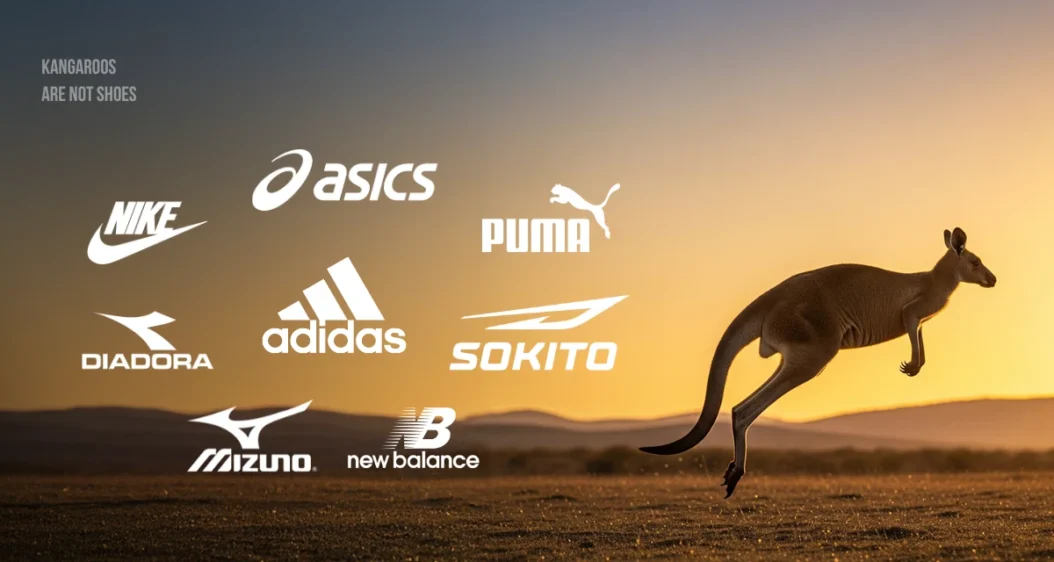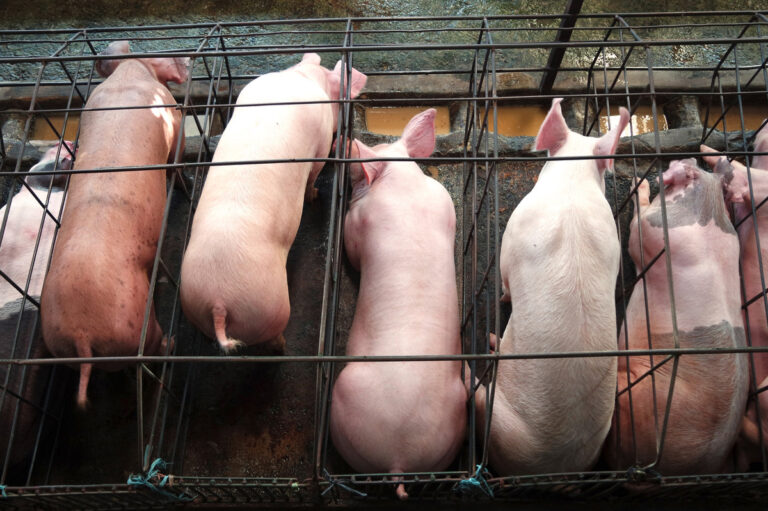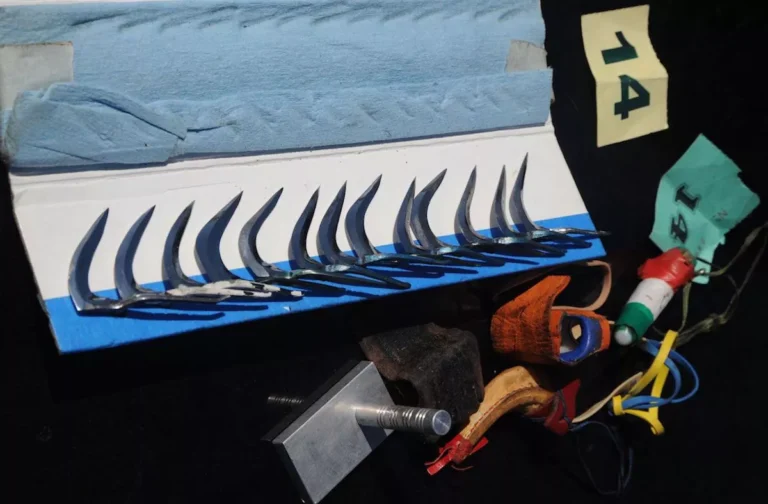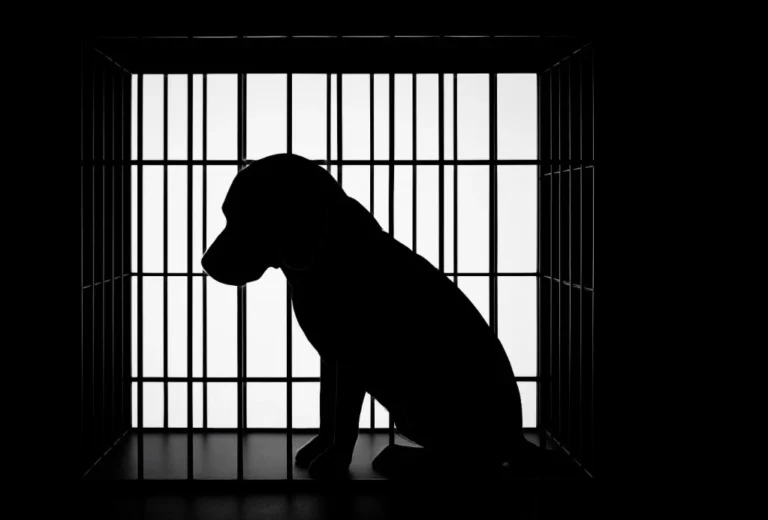BUsiness of Animal Welfare
Adidas Comes Late to a Critical Reform, but with Impact Nonetheless
First Puma, then Adidas set off successive stampedes away from kangaroo skins as soccer shoe casing for global brands

By Wayne Pacelle
In May, I made a presentation before shareholders assembled at Adidas’s annual meeting and was so pleased to hear the CEO express a commitment to end the company’s role in the kangaroo-skin trade for its soccer shoes. In the wake of that momentous announcement, we saw a rush of subsequent and similar announcements from leaders of three other big brands in the athletic shoe industry—ASICS, Mizuno, and Umbro.
That was a redux of what happened two years prior. In March 2023, Puma agreed to stop sourcing kangaroo skins. Nike followed less than two weeks later, and then in the fall of 2023, New Balance made the same pledge.
With these two waves of corporate commitments—first in 2023 and then in 2025—the Kangaroos Are Not Shoes campaign has now run the table on this issue with nine of the world’s leading soccer shoe manufacturers.
And these were no small matters or pledges easily obtained. At last count, Mizuno alone had upwards of 25 shoe models made from kangaroos. Adidas (ETR:ADSGN) has been for decades the most politically active company protecting the industry’s freedom to participate in the skin trade.
Dumping kangaroo skins from the supply chains of companies that sell shoes to hundreds of millions of consumers on six continents may very well result in the collapse of the foreign market for kangaroo leather. That’s a good thing, given that the skins are the most valued part of the marsupials. It’s exciting there may soon be a cratering in the scale of what was the largest commercial slaughter of terrestrial wildlife anywhere on Earth.
Killing Wild Kangaroos At Odds with Wildlife Protection Values
Before the Center for a Humane Economy launched the Kangaroos Are Not Shoes campaign in 2020, it issued a research paper entitled, “The Moral Footprint of the Athletic Shoe Industry.” We documented an industry striving for sustainability but still relying on commercial shooters to procure skins for soccer cleats. That sourcing practice struck me as vulnerable and ripe for reform.
Selling these shoes in the United States felt like a moral stretch. We don’t shoot black bears in America and turn their coats into fur hats. We stopped killing bison for their hides and tongues for domestic or foreign markets in the 19th century. We as a nation ended, more than a century ago, the practice of killing birds for their feathers and bundling them together to make ladies’ hats for the millinery trade. Why would we participate in this reckless, needless market killing of Australia’s native wildlife by buying up shoes made from the popular marsupials?
It was a false note, too, for Australia to put kangaroos at the center of the country’s marketing and tourism promotions while also quietly enabling and encouraging their mass killing. Heck, the kangaroo is featured on the Australian coat of arms. The logo of Qantas Airlines features the distinctive marsupial, too.
And the buying public had virtually no knowledge that when they laced up soccer shoes, they were wrapping kangaroo skin around their feet. When alerted to the gory details, most people recoiled.
Other Major U.S. and German Brands Abandoned Kangaroo Sourcing in 2023
Corporations eventually responded to the grisly details of our campaign and the swelling public disapproval that came with awareness. Of the top five soccer cleat brands—including Nike, New Balance, Puma, and Diadora—Adidas was slowest to come around.
In the end, the campaign took me to Adidas’s headquarters in Fürth, Germany, where I presented to the board members, executive team, and shareholders at the company’s Annual General Meeting. The CEO had generously given me the floor to make a detailed case—describing both the cruelty of commercial kangaroo slaughter and the company’s impressive innovations in animal-free shoe design. Right then and there, the CEO announced that Adidas would exit the kangaroo skin trade for good, and international headlines quickly followed.
Within days of the Adidas announcement, ASICS corresponded with the Center, stating it would close out its use of kangaroos by year’s end. And a week after that, Mizuno told the Center’s Jennifer Skiff that it, too, was going to phase out the use of kangaroo parts. It was quite a statement for a company with more than two dozen kangaroo-skin models in the marketplace.
Diadora, Puma, Nike, New Balance, Sokito, Adidas, ASICS, Mizuno, and Umbro collectively sold soccer shoes to hundreds of millions of athletes in 200 nations. Their work for years annually put millions of kangaroos in the gunsights.
Diadora, Puma, Nike, New Balance, Sokito, Adidas, ASICS, Mizuno, and Umbro collectively sold soccer shoes to hundreds of millions of athletes in 200 nations. Their work for years annually put millions of kangaroos in the gunsights.
The shift toward a more humane economic order will go a long way to shrinking foreign markets that commercial shooters have long depended upon. Up until just a few years ago, it was two million kangaroos shot in the neck or head for shoes. But I knew, and the companies knew, that they’d been using more humane and sustainable fabrics for their shoe offerings for running, golf, tennis, and other sports. No reason for a moral exemption for soccer shoes.
Companies Turn from Persecutors to Protectors
For years, Adidas defended its use of kangaroo skins, even suing the state of California to overturn its ban on kangaroo products. California’s courts weren’t buying it. Nor were California lawmakers, who turned back Adidas’s lobbying campaign to unwind the only state law forbidding trade in kangaroo skins.
Even as wildfires decimated kangaroo populations in 2020—and the world sent money for wildlife rescue and long-term care of traumatized animals—Adidas, Nike, and other big brands didn’t budge. All the while, the companies posted glossy statements about their commitment to “sustainability” and “innovation”.
But Adidas had become an outlier after the pledges from Puma, Nike, and New Balance. Our campaign, aided by the protests by Donny Moss and Their Turn, Australia’s Animal Justice Party, and so many others, was creating discomfort for Adidas management across the world.
Hollywood producer and director Gavin Polone produced a gripping short film that rewinds the transformation of kangaroos to cleats, from pitch to crosshairs in the Outback. And U.S. lawmakers, including Sens. Tammy Duckworth, D-Ill., and Cory Booker, D-N.J., and Reps. Brian Fitzpatrick, R-Pa., and Jan Schakowsky, D-Ill., introduced the bipartisan Kangaroo Protection Act to end any U.S. imports of kangaroo products.
In the end, the commotion, the contradictions, and the prospect of commercial trade bans were too much. And when some of the big names got on board, it made the holdouts look heartless and obdurate, and it was time for everybody else to get on board with the core demand of the campaign, too.
There’s still work to do. Mizuno must formalize its timeline. Adidas and other companies must honor their pledges. And Congress must pass the Kangaroo Protection Act to ensure our giant market no longer welcomes the sanitized skins sent our way by the collaboration of clothing companies and commercial shooters.
When we say, “Kangaroos Are Not Shoes,” we are iterating more than a campaign slogan. We are asserting the end of the era of treating wild animals as goods sold opportunistically in the global marketplace. We are saying that the world’s most popular sport—soccer, a game enjoyed by billions—need not come at the expense of animals whose lives matter as much to them as our lives to us.
Please write your federal lawmakers in support of the Kangaroo Protection Act.

When we say, “Kangaroos Are Not Shoes,” we are iterating more than a campaign slogan. We are asserting the end of the era of treating wild animals as goods sold opportunistically in the global marketplace.
Other Business Posts
Kangaroos Are Not Shoes: Campaign Timeline
- The Center for a Humane Economy launches the Kangaroos Are Not Shoes campaign
- Diadora confirms it will stop using kangaroo leather in its shoes following a campaign led by Italian organization Dalla Parte Degli Animali.
- The Center publishes an industry analysis of developments in plant-based fabrics and synthetic products that reduced leather use in footwear.
- The campaign launches a “No-Buy List” to guide consumers away from brands still using kangaroo leather.
- The Center exposes hundreds of California retailers illegally selling kangaroo skin boots through their special investigation, “Skin in the Game.”
- Advocates place pressure on Nike with protests, billboards, and petitions asking the sportswear leader to stop using kangaroo leather.
- Representative Brian Fitzpatrick (R-PA) introduced the Kangaroo Protection Act in the U.S. House of Representatives—the first bill in a generation to address kangaroo slaughter for athletic shoes
- Protests erupt from New York to Sydney, paired with lawsuits and media coverage exposing the industry’s cruelty.
- Puma and Nike announce they will eliminate kangaroo leather from their shoe lines by the end of 2023. Diadora had made the pledge before them, in 2021.
- New Balance tell the Center it will eliminate kangaroo leather in shoes by the end of 2024.
- Representative Brian Fitzpatrick re-introduces the Kangaroo Protection Act in the House of Representatives.
- The Center launches the “Don't Be a DICK’S” initiative targeting America's largest sporting goods retailer for selling shoes made with kangaroo leather.
- Animal activists disrupt Adidas stores worldwide in an ongoing, orchestrated campaign led by the Center, Their Turn, and the Animal Justice Party in Australia with numerous groups in Germany protesting weekly outside Adidas flagship stores.
- U.K.-based soccer cleat maker Sokito stops using kangaroo leather, citing ethical and sustainability concerns in the commercial kill of kangaroos.
- Adidas CEO Bjorn Gulden hints to shareholders it may stop sourcing kangaroo leather.
- A review by the Center shows Mizuno is offering 28 models of shoes made with kangaroo leather, making it the biggest offender of athletic wear companies still using the skin of the marsupials.
- U.S. Reps. Brian Fitzpatrick, R-Penn., and Jan Schakowsky, D-Ill., introduce the Kangaroo Protection Act, H.R. 1992, to ban the sale of kangaroo body parts in the United States.
- At the Adidas’ annual general meeting in Germany, CEO Bjorn Gulden informs shareholders and Center president Wayne Pacelle that the company has ceased sourcing kangaroo leather.
- Shoemaker ASICS emails the Center with a commitment to end kangaroo leather use by the end of 2025.
- Mizuno writes to the Center stating it will phase out kangaroo leather in its shoe line but refuses to provide an end date.
- Umbro responds to an email from the Center, stating it plans to end the use of kangaroo skin in shoes by Q3 2026.
- Senators Tammy Duckworth (D-IL) and Cory Booker (D-NJ) introduce the Kangaroo Protection Act of 2025 (S.2162) in the 119th Congress to prohibit certain activities involving kangaroos and kangaroo products.
- The six largest athleticwear companies in the world have stopped using kangaroo leather in their shoes. The seventh, Mizuno, has pledged to stop.
- The campaign against Mizuno and other shoemakers, as well as companies that use kangaroo skin in other products, continues.


